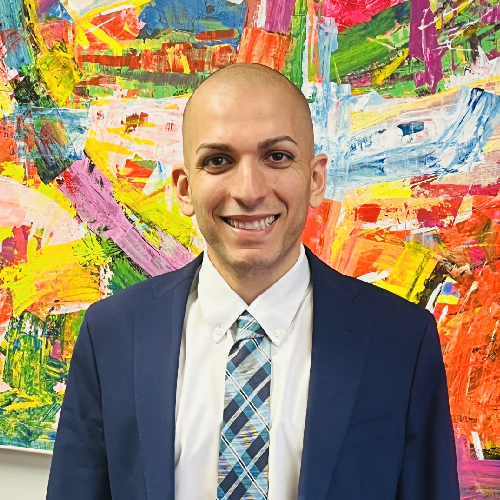When you’re holding a commercial driver’s license and you get charged with DWI, your entire livelihood is on the line. You’re not just facing fines or a few days in court. You’re facing the real chance of losing your job, your license, and the income your family depends on. In moments like this, witnesses can play a big part in your defense. They help show your side of the story, and sometimes, their voice can tip the scales.
Firm Accolades
Why Witnesses Matter So Much in CDL DWI Cases
A DWI charge is already serious, but for someone with a CDL, it carries even more weight. The standards are higher. The penalties are tougher. And the risk of losing everything is real. That’s why it matters to have every possible advantage. Witnesses, whether they were with you during the stop or can speak to your character or habits, help tell the truth about what really happened.
In many CDL DWI cases, the arresting officer is not the only voice in the room. You have a right to be heard too. Witnesses can help balance the story. Maybe they saw you stop drinking hours before driving. Maybe they saw the officer make mistakes during the stop. Maybe they were passengers in your vehicle and can talk about your behavior. Their stories matter.
Different Types of Witnesses and What They Bring
Some witnesses were there that night. They were at the same event or in the car with you. They can describe how much you drank, what you ate, how you were acting, and how you drove. That kind of real-time detail helps the court see that your actions didn’t match the charges.
Other witnesses didn’t see the arrest, but they know you well. These folks can speak about your habits, your drinking patterns, or how seriously you take your job. For example, a co-worker might talk about how you always follow safety rules. A friend might explain that you never get behind the wheel after even one drink. These details can add weight to your defense.
Managing Partner Partner & Criminal Division Chief Criminal Division Trial Chief Criminal Trial Division Criminal Trial Division Of Counsel

Then there are what some call technical witnesses. These might include people who understand how breath tests work or who know the condition of your vehicle. For instance, if you failed a field sobriety test, but your shoes were worn or the road was slick, someone can explain how that might have affected your performance.
When a Witness Can Change the Direction of a Case
There are times when one good witness can shift everything. In one case, a man was arrested for DWI after a long-haul shift. The officer claimed he was weaving and slow to answer questions. But his dashcam didn’t tell the full story. His passenger—a fellow driver—testified that he was just tired from the road, not drunk. A mechanic later added that the truck’s steering had issues. Together, they told a story that made sense. The case ended without a conviction.
That’s the kind of impact a strong witness can have. They fill in the gaps. They bring a full picture. They speak to the truth that you might struggle to prove alone.
What Makes a Witness Strong
A strong witness is someone who is clear, honest, and has no reason to lie. They’re not guessing or making things up. They speak to what they saw, what they know, or what their training tells them. And when they speak, people listen.
It also helps if they are calm and respectful in court. Even if they’re nervous, the best witnesses come across as real and fair. Judges and juries can tell when someone is stretching the truth. That’s why honesty is the most important thing.
Preparing Witnesses to Tell the Truth the Right Way
A good lawyer helps witnesses get ready before they ever step into court. That means going over the facts, the questions they might face, and how to stay calm. It’s not about coaching them to say what we want. It’s about helping them stay focused on the truth. We don’t want anyone to get confused or flustered in front of a jury.
Some witnesses don’t want to get involved. They may worry about work, their own record, or just don’t like speaking in public. That’s okay. Part of our job is helping them feel safe and showing them how much their words matter. In some cases, their help could protect someone’s career.
What to Do If You Think a Witness Could Help You
If you’ve been charged with a CDL DWI and you think someone might have seen something or knows something that could help, speak up early. The sooner your lawyer knows, the better they can talk to that person and decide how they fit into your case.
Don’t wait until trial is close. Time matters. Sometimes we need to track people down, and sometimes we need to get written statements or records. The earlier we start, the stronger your case can be.
Biggest Mistakes of a DWI Charge Choosing a Personal Injury AttorneyRelated Videos
What’s At Risk When Witnesses Are Overlooked
Without good witnesses, your story might not get heard the right way. The officer’s report becomes the only version of what happened. That can be dangerous. Judges and juries want the truth, not just one side. If a witness could help, ignoring them may cost you your license or your job.
For commercial drivers, that’s a big deal. You can’t afford to have a DWI on your record. The impact goes way beyond court. It can follow you for years, even if you’re found not guilty later. Insurance, future employers, and your CDL all hang in the balance.
Case Results
Where to Go From Here
If you’re a commercial driver facing a DWI charge, you don’t have to go through it alone. Your job, your license, and your name are worth fighting for. At Deandra Grant Law, we listen to your story, look for witnesses, and help you build a strong defense. You’ve worked too hard to let one charge ruin everything.
Reach out today. We’ll talk about your case, look at what happened, and figure out how to move forward. You have rights. And you deserve a fair shot at keeping your life on track.


























